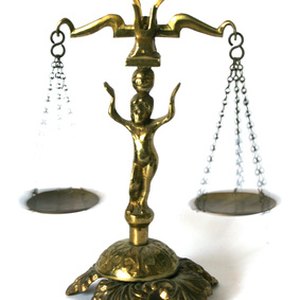
You can use a power of attorney document to grant someone else (called an "agent" or "attorney in fact") the right to make legally binding decisions for you. The person who grants a power of attorney (the "principal") must make sure the document conveying the powers meet state guidelines. Some states do require that powers of attorney must be notarized, while other states have no such requirement. Talk to a lawyer for legal advice about the requirements in your state.
Requirements
Regardless of your state of residence, powers of attorney must be granted through writing. Only adults who are mentally capable of understanding the choices they make and who are of sound mind can grant power of attorney. The power of attorney document must detail the name of the principal, the name of the agent and the types of powers being passed to the agent. It must also comply with all requirements established by state law.
Notary
The principal must sign a power of attorney document before it becomes valid. Some states require that the power of attorney also be signed by one or more witnesses. Furthermore, some states require a power of attorney to be notarized in addition to, or instead of, being witnessed. A principal who is physically unable to sign a power of attorney can direct someone else to sign on his behalf in the presence of witnesses or a public notary.
Recording
Some states require that certain powers of attorney be recorded with a state government office. For example, the state of Ohio requires that you must file any power of attorney with the county recorder's office if the agent is granted the right to convey interests in real estate or real property. Other types of power of attorney do not necessarily have to be registered with any government office for them to be valid.
Third Parties
Even though your state's law may not require notarization of a power of attorney, some third parties may include this requirement before they act on the agent's directions. For example, a bank may require you to have your financial power of attorney notarized before the bank will honor checks signed on your behalf by your agent. These requirements differ from organization to organization even within the same state and regardless of what the law requires.
References
Writer Bio
Roger Thorne is an attorney who began freelance writing in 2003. He has written for publications ranging from "MotorHome" magazine to "Cruising World." Thorne specializes in writing for law firms, Web sites, and professionals. He has a Juris Doctor from the University of Kansas.

